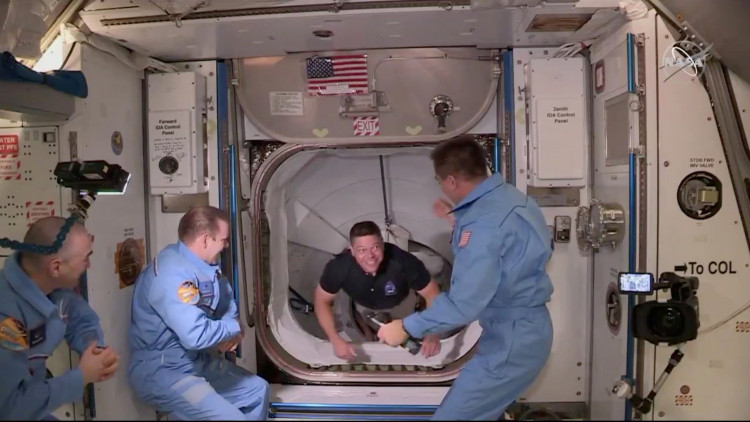NASA's chief space operations official said Monday that the International Space Station is continuing to run normally alongside Russia and the agency's other partners, but that the agency is considering its options for the future in light of Russia's ongoing invasion of Ukraine.
Russia launched a series of military attacks against Ukraine on Thursday, provoking economic sanctions from a number of countries, including the U.S. Sanctions imposed by the U.S., have had a direct impact on the space program. Russia's space program, according to President Joe Biden, would be crippled.
"We understand this the global situation where it is, but as a joint team, these teams are operating together," NASA's associate administrator for space operations Kathy Lueders said of Russia's space agency Roscosmos on Monday. "That said we always look for how do we get more operational flexibility [with] our cargo providers, and are looking at how do we add different capabilities."
Russia and the U.S. are tightly interwoven principal partners on the multinational ISS, with a collaboration dating back to the early 1990s, shortly after the dissolution of the Soviet Union. Russia is principally responsible for the station's propulsion parts, for example, while the U.S. side of the station provides electrical power to the entire complex.
Lueders' assurances came just a few days after Roscosmos chief Dimitry Rogozin accused the U.S. of attempting to "destroy" the ISS collaboration, and threatened to let the space station deorbit naturally in response.
Russia has pulled out of a number of multinational space coalition initiatives, including the European Arianespace Soyuz satellite launch program from French Guiana. However, the working environment aboard the ISS, according to Lueders, has been remarkably consistent since the invasion.
Despite Rogozin's comments, Russia is responsible for refueling the space station on a regular basis using its Progress cargo spacecraft. These orbital movements are required to keep the relatively low-flying ISS (at 250 miles or 400 kilometers in altitude) above the Earth's atmosphere; otherwise, the space station would run into atmospheric tendrils in low Earth orbit, causing its orbit to plummet over time.
NASA, according to Lueders, is mindful of the geopolitical environment and is exploring other options while still seeking a partnership with Russia.
Elon Musk, the founder of SpaceX, has sent many tweets in recent days implying that his company is willing to step up to execute Progress functions using the Dragon spacecraft, which already carries cargo to the ISS.
However, it is unclear whether SpaceX will eventually replace Soyuz, as NASA is still prepared to rely on the Russian spacecraft to conduct regular spaceflight operations.





